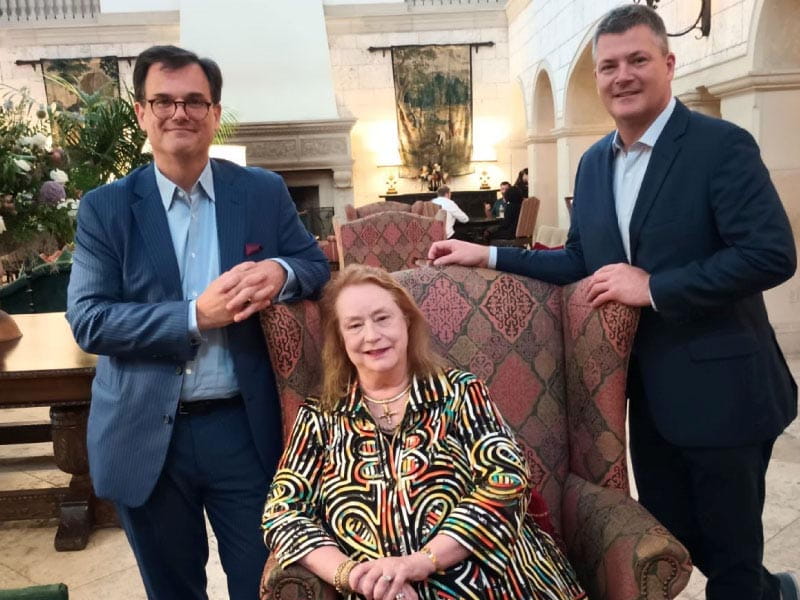The Bugher Foundation has provided valuable funds, ideas to support AHA research, researchers

With more than $63 million in gifts, the Henrietta B. and Frederick H. Bugher Foundation is among the most generous donors in the history of the American Heart Association.
With a large chunk of those donations going toward brain health, the Bugher Foundation is the top funder of stroke research in AHA history.
But money isn't the only precious gift given by Trustees of the Bugher Foundation.
They've provided transformative ideas, too.
From the start, back in 1984, the Bugher Trustees wanted to invest not only in science but also in scientists — primarily early-career scientists. By funding their research ideas, Trustees encouraged young researchers to remain in the field. How did that work out? About 90% of the original 122 grant recipients indeed remained in research, including a future AHA president and the scientist who came up with a major improvement for stents, the tiny tubes frequently used to resolve heart attacks.
Over the decades, the Bugher Foundation has funded five multiyear projects, each with a different focus. The emphasis on up-and-comers has remained. Along the way, Trustees noticed something. While early-career scientists described their work with a lot of passion, their presentations were way too technical. So the Trustees began offering training to help researchers translate their work for the masses. How did that work out? Bugher alums have since landed many other large grants, promotions and more.
Then there's their biggest idea — implementing a time-tested business principle that had yet to gain traction in the world of medical science.
In biz-speak, it's known as cross-institutional collaboration.
More simply, it's turning research into a team sport.
Starting with the third Bugher-funded project, three institutions were chosen separately and told to work together. Because it was a foreign concept, the start was bumpy. By the end, everyone saw the benefit. It's become a standard part of the AHA's massive research portfolio and is widely used across science.
Now, as the AHA turns 100 and as the AHA-Bugher Foundation relationship turns 40, the bond between the public health organization and the family foundation is stronger than ever. In fact, a sixth funded research project — a $12.925 million gift to investigate stroke as a systemic and chronic disease — was announced the day of the AHA's centennial.
"We've never found a partner who could do a better job, who held more trust and more of our confidence," said Bryan Adams, one of the three Bugher Trustees. "After 40 years, we're still here and we intend to stay here."
There's still one more fascinating layer to all this. This story of the Bugher Foundation itself, the tale of a family foundation that's run by two families — neither related to the funders nor with any expertise in cardiovascular disease, or any family connection to it, yet became such a powerful force in the field.
The colorful tale starts with a colorful figure, Frederick Hamilton Bugher, a former police commissioner of New York City and a member of an extremely noteworthy family around the turn of the 20th century.
His uncles included George Dewey, the only U.S. Navy officer bestowed the rank of Admiral of the Navy, and John Roll McLean, the owner and publisher of The Washington Post and Cincinnati Enquirer; one of his first cousins owned the Hope Diamond. McLean, Virginia, is named for his family.
Frederick and his wife Henrietta built their fortune mainly from real estate. When they died, that fortune went to their only living child, Fred Bugher.
Mainly for tax purposes, Fred's lawyer set up a foundation. IRS rules required a purpose. Because both his parents died of heart disease, Fred chose cardiovascular research.
Fred died in the early 1980s with no heirs. His money went to the foundation.
The lawyer behind it all was Nelson Adams. When the bottom line ballooned, he brought in Robert "Bob" Robinson to manage the money.
The plan, though, was to spend it on cardiovascular research. So it made sense to go to the organization already leading the way in that field. The AHA, of course.
Molecular biology was the hot topic at the time, so Trustees were happy to invest in it. When it was time to discuss a focus for the second Bugher-funded project, AHA leaders recommended switching to an emphasis on stroke. Why? For the simple reason there was plenty of room to make a difference.
And what a difference they've made.
"Professionally, I am so grateful for the relationship between the AHA and the Bugher Foundation — and, personally, the same is true for how I feel about the Trustees," said AHA Chief Executive Officer Nancy Brown. "They are thoughtful, prepared and innovative in everything they do, always pushing us forward and always with an eye toward helping people."
As the decades have passed, so have the generations for the families of the Bugher Trustees.
The three currently serving Trustees are Bruce Adams, Bryan Adams and Gayllis Ward. Each follows in the footsteps of previous Trustees including Nelson Adams, Dan Adams and Bob Robinson.
Over the course of the relationship with the Bugher Foundation, the American Heart Association's chief executive has moved from Dudley Hafner to Cass Wheeler to Nancy Brown. Yet no matter who represents each side, they've all remained aligned on finding new ways to improve and extend lives impacted by cardiovascular disease and stroke.
"Over this long history we have developed a relationship that has really become almost like a friendship," Bruce said. "We've developed a true partnership where we work together to craft donations that really advance science in a collaborative and more effective way."
As the AHA begins its second century, Gayllis envisions that by 2124, heart disease will no longer be the No. 1 killer of Americans.
"I would like to see it become a very obscure disease," she said. "And within the confines of a full century, I think that's actually possible."





